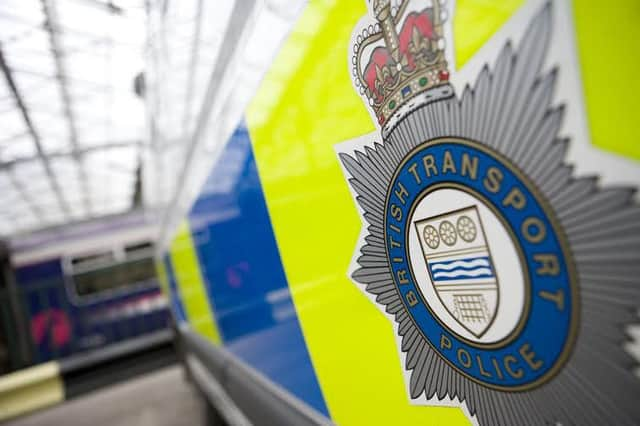Alastair Dalton: British Transport Police should issue appeals faster


Catching and convicting those responsible for crime on the network is therefore crucial.
A key part of that is the issuing of public appeals for information to trace witnesses and solve cases.
Advertisement
Hide AdAdvertisement
Hide AdHowever, memories quickly fade, and I’m told by policing contacts that - unsurprisingly - the prompt publication of details of an incident is the best way to get those who saw or heard it to come forward.
But that doesn’t appear to be happening at British Transport Police (BTP), which is responsible for policing Scotland’s railways.
While Police Scotland usually issues appeals within hours or days of an incident, I’ve noticed that it can be far longer in the case of BTP, sometimes stretching into weeks.
That could make all the difference in helping to apprehend a criminal - and preventing them from striking again.
BTP tells me there are extenuating circumstances in some cases, such as the need to get Crown Office approval for issuing CCTV footage.
This can cause delays, and is normally only given, according to BTP, as a last resort.
Officers may also be following up other leads first, or victims may have delayed reporting the crime, or be unwilling to co-operate with investigating officers.
However, insiders have told me of a frustration within the force about the time it takes for information about incidents to be made public - either by administrative delays or insufficient awareness of the need to get information out.
Advertisement
Hide AdAdvertisement
Hide AdThat seems to have been confirmed by BTP’s extraordinary admission to me this week that it aims to issue appeals for information “within one month” of incidents.
It offered me no “extenuating circumstances” for several cases in recent months, including an appeal almost a week after a teenager was sexually assaulted on a train, nearly two weeks after a man was racially abused and almost three weeks after a woman was verbally abused.
Information was also sought about major damage to a railway yard three weeks after it happened.
This does not bode well when BTP north of the Border is fighting its controversial merger with Police Scotland, which its supporters say will see the loss of a specialist rail force.
The merger, which has been opposed by opposition parties, came a step closer last month with the Scottish Government publishing proposed legislation to hand railway policing powers to Police Scotland.
Fifteen years ago, David Mulhern, the incoming head of BTP in Scotland, provoked anger by describing the force’s profile and image as “crap and awful”.
He said it had an inferiority complex compared to other forces, and had been seen as a “training ground for retirement.”
In my extensive dealings with BTP since then, I don’t recognise that portrayal, and have found officers of all ranks to be dedicated and thoughtful, many with a sharp eye to keeping the media informed.
Advertisement
Hide AdAdvertisement
Hide AdHowever, any attempt by BTP to continue to present a positive image has been hampered by all communications coming from its London headquarters since last summer, rather than traditionally from its Scottish base in Glasgow.
That can’t have helped the timely issuing of information, now from hundreds of miles away.